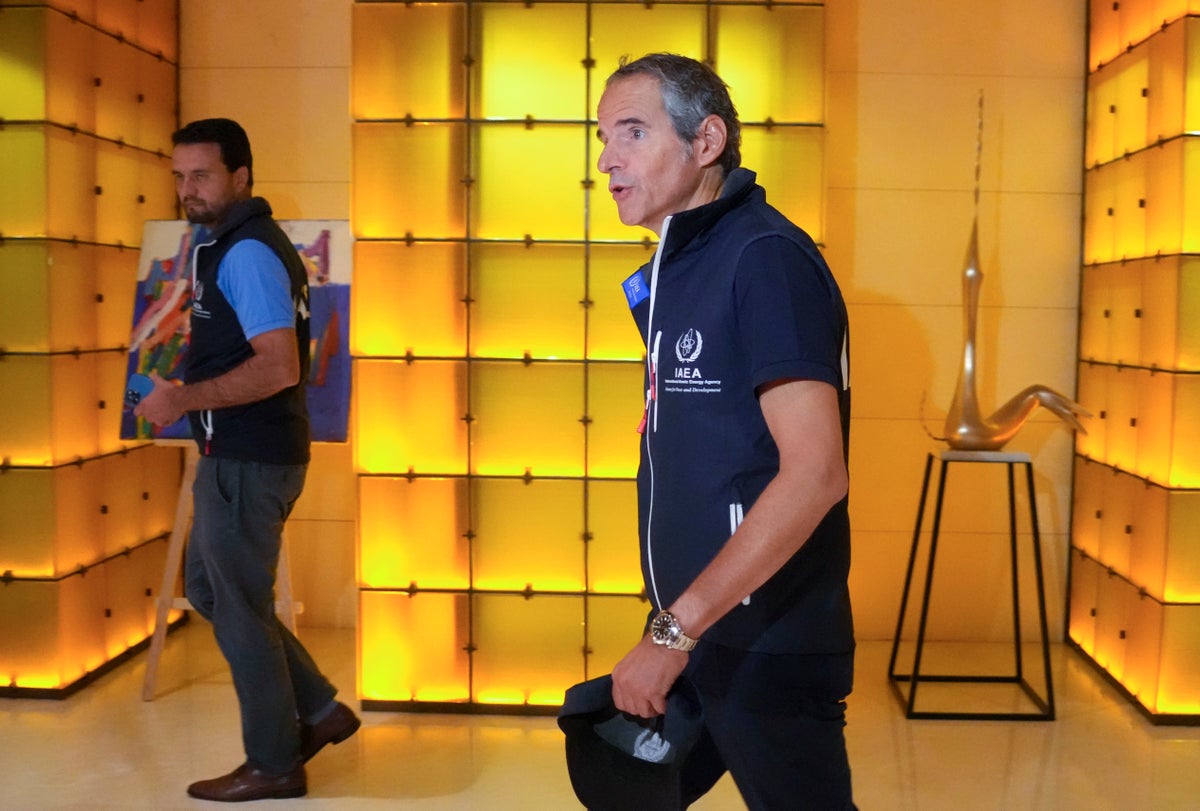
Russia and Ukraine accused each other of waging attacks Thursday near Europe’s largest nuclear power plant just as a team of U.N. inspectors were heading to visit it despite the fighting.
A group of inspectors from the International Atomic Energy Agency, led by its director Rafael Grossi, set off for the Russia-held Zaporizhzhia nuclear power plant despite the heavy shelling that led to an emergency system shutting down one of its reactors.
“There has been increased military activity, including this morning until very recently," Grossi said, adding that after being briefed by the Ukrainian military he decided to get moving despite the inherent risks. “But weighing the pros and cons and having come so far, we are not stopping.”
He noted that the risks are “very, very high” in the so-called grey zone between Ukrainian and Russian positions, but “we consider that we have the minimum conditions to move."
Zaporizhzhia, Europe's largest nuclear power plant, has been occupied by Russian forces but run by Ukrainian engineers since the early days of the 6-month-old war. Ukraine alleges Russia is using the plant as a shield, storing weapons there and launching attacks from around it, while Moscow accuses Ukraine of recklessly firing on the area, raising the threat of a nuclear disaster that may affect the entire continent.
Fighting in early March caused a brief fire at its training complex, and in recent days, the plant was temporarily knocked offline because of damage, heightening fears of a radiation leak or a reactor meltdown. Officials have begun distributing anti-radiation iodine tablets to nearby residents.
“We have a very important mission to accomplish,” Grossi said, adding that “we are going to start immediately an assessment of the security and the safety situation at the plant.”
"I am going to consider the possibility of establishing a continued presence of the IAEA at the plant, which we believe is indispensable to stabilize the situation and to get regular, reliable, impartial, neutral updates of what the situation is there,” he said.
The Russian Defense Ministry said that Ukrainian forces unleashed an artillery barrage of the area and then sent a group of up to 60 scouts to try to seize control of the nuclear plant.
It said that the Ukrainian troops arrived in boats, landing three kilometers northeast of the plant on the left bank of the Dnieper River and tried to seize it. The ministry said that the Russian forces “took steps to destroy the enemy,” engaging warplanes.
“The provocation by the Kyiv regime is intended to derail the arrival of the IAEA’s group at the Zaporizhzhia nuclear power plant,” the ministry said in a statement.
The Russia-installed administration of the city of Enerhodar just outside the plant said that at least three local residents were killed and one was injured early Thursday by the Ukrainian shelling.
Ukrainian authorities accused Russia of shelling Enerhodar and the territory of the nuclear power plant in a false flag attack intended to derail the arrival of the IAEA’s team.
“We are demanding that Russia stop provocations and offer the IAEA unhindered access to the Ukrainian nuclear facility,” said Zaporizhzhia Gov. Oleksandr Starukh.
Neither side's version of events could immediately be independently verified.
Ukraine’s Enerhoatom company that oversees the country’s nuclear power plants said that mortar shelling by the Russian forces led to the shutdown of one of its reactors by its emergency protection system
It added that the shelling also damaged a backup power supply line used for in-house needs, and one of the plant's reactors that wasn't operating was switched to diesel generators.







